December 3, 2020
Virtual workshop, hosted by HESI and the Environmental Mutagenesis and Genomics Society (EMGS)
The workshop will (1) provide a brief overview of the state of the science regarding quantitative interpretation of genetic toxicity dose-response data, including a brief overview of the BMD combined covariate approach for potency ranking and MOA investigation, (2) a summary of recent genotoxicity risk assessment case ...
October 21, 2020 – October 22, 2020
Virtual workshop, hosted by the HESI PATB Committee
The HESI Protein Allergens, Toxins, and Bioinformatics (PATB) Committee is hosting a virtual workshop focusing on the state of the science for a wide array of protein toxins classes, MOAs, structures, activity, and general biology. Additionally, the workshop will cover the bioinformatics analysis of protein toxins and how ...
October 17, 2020 – December 31, 2020
Online submission, via HESI THRIVE
HESI THRIVE is a seed grant program that is innovating translational research and improving quality of life after cancer. By providing researchers with both seed funding and access to critical networks, THRIVE enhances the visibility of the patient need, the value of the research, and the reasons that larger funding entities ...
October 15, 2020
Webinar, hosted by HESI and the American Association of Pharmaceutical Scientists (AAPS)
Development and Regulatory Approval for Toxicogenomics Biomarker to Detect DNA Damage-Inducing Agents
September 3, 2020
Webinar, hosted by the National Heart, Lung, and Blood Institute (NHLBI) PACT Program
The HESI Cell Therapy - TRAcking, Circulation, & Safety (CT-TRACS) Committee is pleased to present a webinar on "Methods for Cellular Tracking Cells In Vivo and Following Biodistribtion" in collaboration with the National Heart, Lung, and Blood Institute (NHLBI) PACT Program. Cell therapies show great ...
May 28, 2020 – May 29, 2020
Paris, France
The HESI Cell Therapy - TRAcking, Circulation, & Safety (CT-TRACS) Committee is pleased to present a session on "Imaging Cellular Therapeutics" as part of the newly designed International Society for Cell & Gene Therapy (ISCT) Virtual Meeting program. Please note that due to health and safety concerns related to the ...
WP_Query Object
(
[query] => Array
(
[post_type] => event
[posts_per_page] => 6
[type] =>
[area] =>
[before] => 2024-07-05
[after] =>
[tags] =>
[showtitle] => false
[meta_query] => Array
(
[relation] => Array
(
[0] => AND
[1] => AND
)
[0] => Array
(
[key] => _ilsi_date
[value] => 2024-07-05
[compare] => <=
)
[1] => Array
(
[key] => _ilsi_end_date
[value] => 2024-07-05
[compare] => <=
)
[2] => Array
(
[key] => _ilsi_date
[value] => Array
(
[0] => 2020-01-01
[1] => 2020-12-31
)
[compare] => BETWEEN
)
[3] => Array
(
[key] => _ilsi_date
[value] => 2020-12-31
[compare] => <
)
)
[paged] => 1
[meta_key] => _ilsi_date
[orderby] => meta_value
[order] => DESC
)
[query_vars] => Array
(
[post_type] => event
[posts_per_page] => 6
[type] =>
[area] =>
[before] => 2024-07-05
[after] =>
[tags] =>
[showtitle] => false
[meta_query] => Array
(
[relation] => Array
(
[0] => AND
[1] => AND
)
[0] => Array
(
[key] => _ilsi_date
[value] => 2024-07-05
[compare] => <=
)
[1] => Array
(
[key] => _ilsi_end_date
[value] => 2024-07-05
[compare] => <=
)
[2] => Array
(
[key] => _ilsi_date
[value] => Array
(
[0] => 2020-01-01
[1] => 2020-12-31
)
[compare] => BETWEEN
)
[3] => Array
(
[key] => _ilsi_date
[value] => 2020-12-31
[compare] => <
)
)
[paged] => 1
[meta_key] => _ilsi_date
[orderby] => meta_value
[order] => DESC
[error] =>
[m] =>
[p] => 0
[post_parent] =>
[subpost] =>
[subpost_id] =>
[attachment] =>
[attachment_id] => 0
[name] =>
[pagename] =>
[page_id] => 0
[second] =>
[minute] =>
[hour] =>
[day] => 0
[monthnum] => 0
[year] => 0
[w] => 0
[category_name] =>
[tag] =>
[cat] =>
[tag_id] =>
[author] =>
[author_name] =>
[feed] =>
[tb] =>
[meta_value] =>
[preview] =>
[s] =>
[sentence] =>
[title] =>
[fields] =>
[menu_order] =>
[embed] =>
[category__in] => Array
(
)
[category__not_in] => Array
(
)
[category__and] => Array
(
)
[post__in] => Array
(
)
[post__not_in] => Array
(
)
[post_name__in] => Array
(
)
[tag__in] => Array
(
)
[tag__not_in] => Array
(
)
[tag__and] => Array
(
)
[tag_slug__in] => Array
(
)
[tag_slug__and] => Array
(
)
[post_parent__in] => Array
(
)
[post_parent__not_in] => Array
(
)
[author__in] => Array
(
)
[author__not_in] => Array
(
)
[search_columns] => Array
(
)
[ignore_sticky_posts] =>
[suppress_filters] =>
[cache_results] => 1
[update_post_term_cache] => 1
[update_menu_item_cache] =>
[lazy_load_term_meta] => 1
[update_post_meta_cache] => 1
[nopaging] =>
[comments_per_page] => 50
[no_found_rows] =>
)
[tax_query] => WP_Tax_Query Object
(
[queries] => Array
(
)
[relation] => AND
[table_aliases:protected] => Array
(
)
[queried_terms] => Array
(
)
[primary_table] => wp_posts
[primary_id_column] => ID
)
[meta_query] => WP_Meta_Query Object
(
[queries] => Array
(
[0] => Array
(
[key] => _ilsi_date
)
[1] => Array
(
[0] => Array
(
[key] => _ilsi_date
[value] => 2024-07-05
[compare] => <=
)
[1] => Array
(
[key] => _ilsi_end_date
[value] => 2024-07-05
[compare] => <=
)
[2] => Array
(
[key] => _ilsi_date
[value] => Array
(
[0] => 2020-01-01
[1] => 2020-12-31
)
[compare] => BETWEEN
)
[3] => Array
(
[key] => _ilsi_date
[value] => 2020-12-31
[compare] => <
)
[relation] => AND
)
[relation] => AND
)
[relation] => AND
[meta_table] => wp_postmeta
[meta_id_column] => post_id
[primary_table] => wp_posts
[primary_id_column] => ID
[table_aliases:protected] => Array
(
[0] => wp_postmeta
[1] => mt1
[2] => mt2
[3] => mt3
[4] => mt4
)
[clauses:protected] => Array
(
[wp_postmeta] => Array
(
[key] => _ilsi_date
[compare] => =
[compare_key] => =
[alias] => wp_postmeta
[cast] => CHAR
)
[mt1] => Array
(
[key] => _ilsi_date
[value] => 2024-07-05
[compare] => <=
[compare_key] => =
[alias] => mt1
[cast] => CHAR
)
[mt2] => Array
(
[key] => _ilsi_end_date
[value] => 2024-07-05
[compare] => <=
[compare_key] => =
[alias] => mt2
[cast] => CHAR
)
[mt3] => Array
(
[key] => _ilsi_date
[value] => Array
(
[0] => 2020-01-01
[1] => 2020-12-31
)
[compare] => BETWEEN
[compare_key] => =
[alias] => mt3
[cast] => CHAR
)
[mt4] => Array
(
[key] => _ilsi_date
[value] => 2020-12-31
[compare] => <
[compare_key] => =
[alias] => mt4
[cast] => CHAR
)
)
[has_or_relation:protected] =>
)
[date_query] =>
[request] =>
SELECT SQL_CALC_FOUND_ROWS wp_posts.ID
FROM wp_posts INNER JOIN wp_postmeta ON ( wp_posts.ID = wp_postmeta.post_id ) INNER JOIN wp_postmeta AS mt1 ON ( wp_posts.ID = mt1.post_id ) INNER JOIN wp_postmeta AS mt2 ON ( wp_posts.ID = mt2.post_id ) INNER JOIN wp_postmeta AS mt3 ON ( wp_posts.ID = mt3.post_id ) INNER JOIN wp_postmeta AS mt4 ON ( wp_posts.ID = mt4.post_id )
WHERE 1=1 AND (
wp_postmeta.meta_key = '_ilsi_date'
AND
(
( mt1.meta_key = '_ilsi_date' AND mt1.meta_value <= '2024-07-05' )
AND
( mt2.meta_key = '_ilsi_end_date' AND mt2.meta_value <= '2024-07-05' )
AND
( mt3.meta_key = '_ilsi_date' AND mt3.meta_value BETWEEN '2020-01-01' AND '2020-12-31' )
AND
( mt4.meta_key = '_ilsi_date' AND mt4.meta_value < '2020-12-31' )
)
) AND ((wp_posts.post_type = 'event' AND (wp_posts.post_status = 'publish' OR wp_posts.post_status = 'acf-disabled')))
GROUP BY wp_posts.ID
ORDER BY wp_postmeta.meta_value DESC
LIMIT 0, 6
[posts] => Array
(
[0] => WP_Post Object
(
[ID] => 23708
[post_author] => 2
[post_date] => 2020-10-27 17:55:16
[post_date_gmt] => 2020-10-27 17:55:16
[post_content] =>
[post_title] => Quantitative Interpretation of Genetic Toxicity Dose Response Data for Risk Assessment and Regulatory Decision-Making: Current Status, Persistent Challenges, and Emerging Priorities
[post_excerpt] =>
[post_status] => publish
[comment_status] => closed
[ping_status] => closed
[post_password] =>
[post_name] => quantitative-interpretation-of-genetic-toxicity-dose-response-data-for-risk-assessment-and-regulatory-decision-making-current-status-persistent-challenges-and-emerging-priorities
[to_ping] =>
[pinged] =>
[post_modified] => 2020-10-30 15:26:58
[post_modified_gmt] => 2020-10-30 15:26:58
[post_content_filtered] =>
[post_parent] => 0
[guid] => https://hesiglobal.org/?post_type=event&p=23708
[menu_order] => 0
[post_type] => event
[post_mime_type] =>
[comment_count] => 0
[filter] => raw
)
[1] => WP_Post Object
(
[ID] => 22887
[post_author] => 2
[post_date] => 2020-08-04 09:30:56
[post_date_gmt] => 2020-08-04 14:30:56
[post_content] =>
The HESI Protein Allergens, Toxins, and Bioinformatics (PATB) Committee is hosting a virtual workshop focusing on the state of the science for a wide array of protein toxins classes, MOAs, structures, activity, and general biology. Additionally, the workshop will cover the bioinformatics analysis of protein toxins and how to leverage computational biology for protein toxins identification/characterization, with in silico approaches.
The Protein Toxins Workshop will serve the dual purpose of learning from the experts in the field about the state of the science as well as assessing the translation of knowledge to practical applications, e.g., into weight-of-evidence approaches for the safety assessment of biotechnology products. The workshop aims to gain insight into how feasible/useful (or not) a protein toxin database could be in risk assessment/product development. This meeting will serve as an informational platform about HESI and will demonstrate the advances in protein toxins research, presented by international experts, and will help inform the development of novel approaches for the identification and classification of potential toxicity risk in novel proteins.
Details
- Date: Wednesday, 21 October 2020 - Thursday, 22 October 2020
- Time: 9:00 AM - 12:00 PM EST
- Registration: Details coming soon

Workshop Program Outline (subject to change)
Wednesday, 21 October 2020
- 9:00 AM - Opening Remarks (Dr. Laura Privalle, BASF Corporation)
- From protein toxins to biotechnology products
- Setting the stage; considerations for publication of meeting report
- 9:30 AM - Brief Codex Discussion
- Allergenicity assessment vs. toxins/toxicity assessment
- 10:00 AM - Terrestrial Toxins
- 11:30 AM - Marine Toxins
Thursday, 22 October 2020
- 9:00 AM - Bacterial Toxins
- 10:30 AM - Bioinformatics & Computational Biology in Protein Toxins Research
For more information, please contact the PATB Committee's Senior Scientific Program Manager, Dr. Lucilia Mouriès at lmouries@hesiglobal.org.
[post_title] => PATB Committee Protein Toxins Workshop
[post_excerpt] =>
[post_status] => publish
[comment_status] => closed
[ping_status] => closed
[post_password] =>
[post_name] => patb-committee-protein-toxins-workshop
[to_ping] =>
[pinged] =>
[post_modified] => 2022-03-07 14:41:34
[post_modified_gmt] => 2022-03-07 14:41:34
[post_content_filtered] =>
[post_parent] => 0
[guid] => https://hesiglobal.org/?post_type=event&p=22887
[menu_order] => 0
[post_type] => event
[post_mime_type] =>
[comment_count] => 0
[filter] => raw
)
[2] => WP_Post Object
(
[ID] => 23732
[post_author] => 2
[post_date] => 2020-10-29 14:53:54
[post_date_gmt] => 2020-10-29 14:53:54
[post_content] =>
[post_title] => THRIVE Letters of Intent: Submission Now Open!
[post_excerpt] =>
[post_status] => publish
[comment_status] => closed
[ping_status] => closed
[post_password] =>
[post_name] => thrive-letters-of-intent-submission-now-open
[to_ping] =>
[pinged] =>
[post_modified] => 2020-11-02 18:33:47
[post_modified_gmt] => 2020-11-02 18:33:47
[post_content_filtered] =>
[post_parent] => 0
[guid] => https://hesiglobal.org/?post_type=event&p=23732
[menu_order] => 0
[post_type] => event
[post_mime_type] =>
[comment_count] => 0
[filter] => raw
)
[3] => WP_Post Object
(
[ID] => 23667
[post_author] => 3
[post_date] => 2020-10-14 05:50:56
[post_date_gmt] => 2020-10-14 05:50:56
[post_content] =>
[post_title] => eSTAR Committee and AAPS Webinar Series
[post_excerpt] =>
[post_status] => publish
[comment_status] => closed
[ping_status] => closed
[post_password] =>
[post_name] => estar-committee-and-aaps-webinar-series
[to_ping] =>
[pinged] =>
[post_modified] => 2020-10-29 13:38:09
[post_modified_gmt] => 2020-10-29 13:38:09
[post_content_filtered] =>
[post_parent] => 0
[guid] => https://hesiglobal.org/?post_type=event&p=23667
[menu_order] => 0
[post_type] => event
[post_mime_type] =>
[comment_count] => 0
[filter] => raw
)
[4] => WP_Post Object
(
[ID] => 22879
[post_author] => 13
[post_date] => 2020-08-03 13:40:52
[post_date_gmt] => 2020-08-03 18:40:52
[post_content] =>
Methods for Cellular Therapies: Tracking Cells In Vivo and Assessing Biodistribution in Patients
What are your cells doing? Where do they go?
The HESI Cell Therapy - TRAcking, Circulation, & Safety (CT-TRACS) Committee is pleased to present a webinar on "Methods for Cellular Therapies: Tracking Cells In Vivo and Assessing Biodistribution in Patients" in collaboration with the National Heart, Lung, and Blood Institute (NHLBI) PACT Program.
Details:
- Date: Thursday, 3 September 2020
- Time: 12:00 PM - 1:00 PM EST
- Registration: Click here to register.
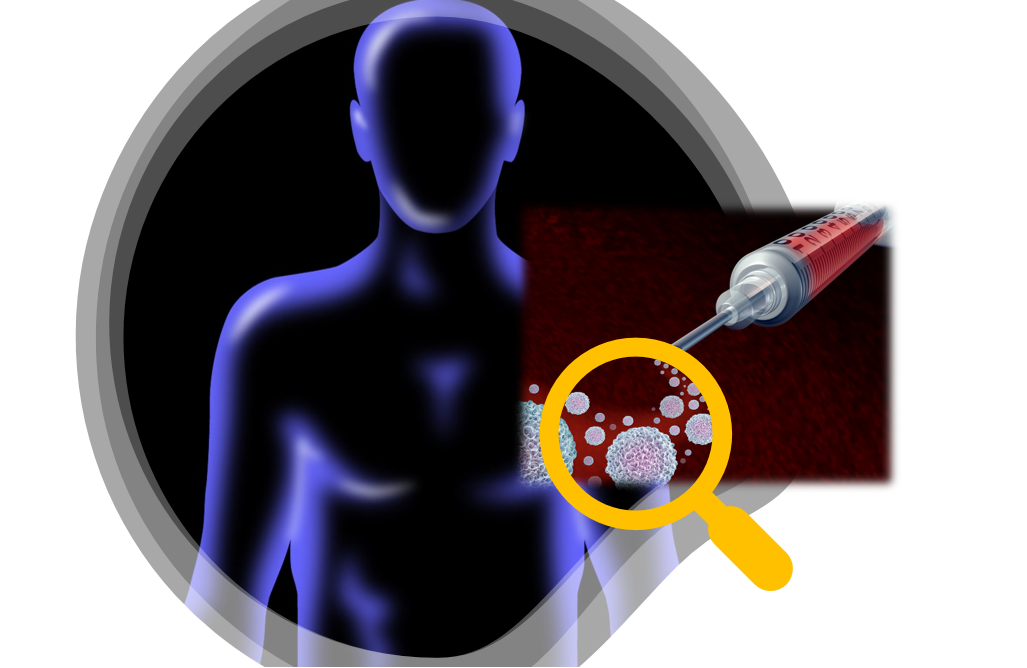
Speakers:
- Bill Shingleton, PhD, Alliances Manager at Cytiva
- Brooke Helfer, PhD, Director of Research and Development at Celsense, Inc.
- David Morrow, PhD, MBA, ATMP and Vaccine Scientific Program Manager at EATRIS
Cell therapies show great therapeutic promise in the fields of regenerative medicine and immunotherapy. To realize their full clinical potential, there is a need for greater understanding of their mode of action, how they migrate after administration to deliver their therapeutic benefits, their persistence at sites of action, and whether their properties, localization, or distribution may cause safety issues. Currently, there are several existing and many emerging tools available to develop pharmacokinetic data on these cell-derived therapies to improve our understanding of the mechanism of action and demonstrate on-target delivery, but adoption by clinical investigators has been limited.
In this web seminar, the CT-TRACS Committee speakers will provide an overview of technologies currently available for use in patients, how these are relevant to evaluate safety and efficacy aspects of cellular therapies, and the importance of collaboration to address challenges and needs facing the translation of cell therapies into the clinic.
The CT-TRACS Committee provides a neutral platform for cell therapy developers, researchers, regulators, imaging specialists, and other stakeholders to interact, discuss current challenges, and identify best practices to improve confidence in the safety and efficacy of these therapies.
Webinar Objectives:
- To learn about available and emerging noninvasive cell tracking modalities and their value in assessing cell fate and safety in vivo
- To bring awareness on how the application of existing cell tracking technologies, methods, and best practices can benefit the clinical translation of cell therapies
- To emphasize the need for dialogue with the international community and discuss opportunities to address the challenges facing the translation of cell therapies into the clinic
- To understand the importance of therapy developers communicating practical challenges and needs to aid the development of enabling technologies and tools addressing those needs
Additional details can be found via the webinar e-flyer here. For more information, please contact the CT-TRACS Committee's Senior Scientific Program Manager, Dr. Lucilia Mouriès at lmouries@hesiglobal.org.
[post_title] => CT-TRACS Committee and NIH/NHLBI PACT Program Joint Webinar
[post_excerpt] =>
[post_status] => publish
[comment_status] => closed
[ping_status] => closed
[post_password] =>
[post_name] => cttracs-committee-pact-program-webinar
[to_ping] =>
[pinged] =>
[post_modified] => 2020-10-29 13:38:55
[post_modified_gmt] => 2020-10-29 13:38:55
[post_content_filtered] =>
[post_parent] => 0
[guid] => https://hesiglobal.org/?post_type=event&p=22879
[menu_order] => 0
[post_type] => event
[post_mime_type] =>
[comment_count] => 0
[filter] => raw
)
[5] => WP_Post Object
(
[ID] => 22133
[post_author] => 2
[post_date] => 2020-01-16 13:25:44
[post_date_gmt] => 2020-01-16 18:25:44
[post_content] =>
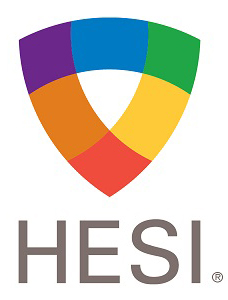
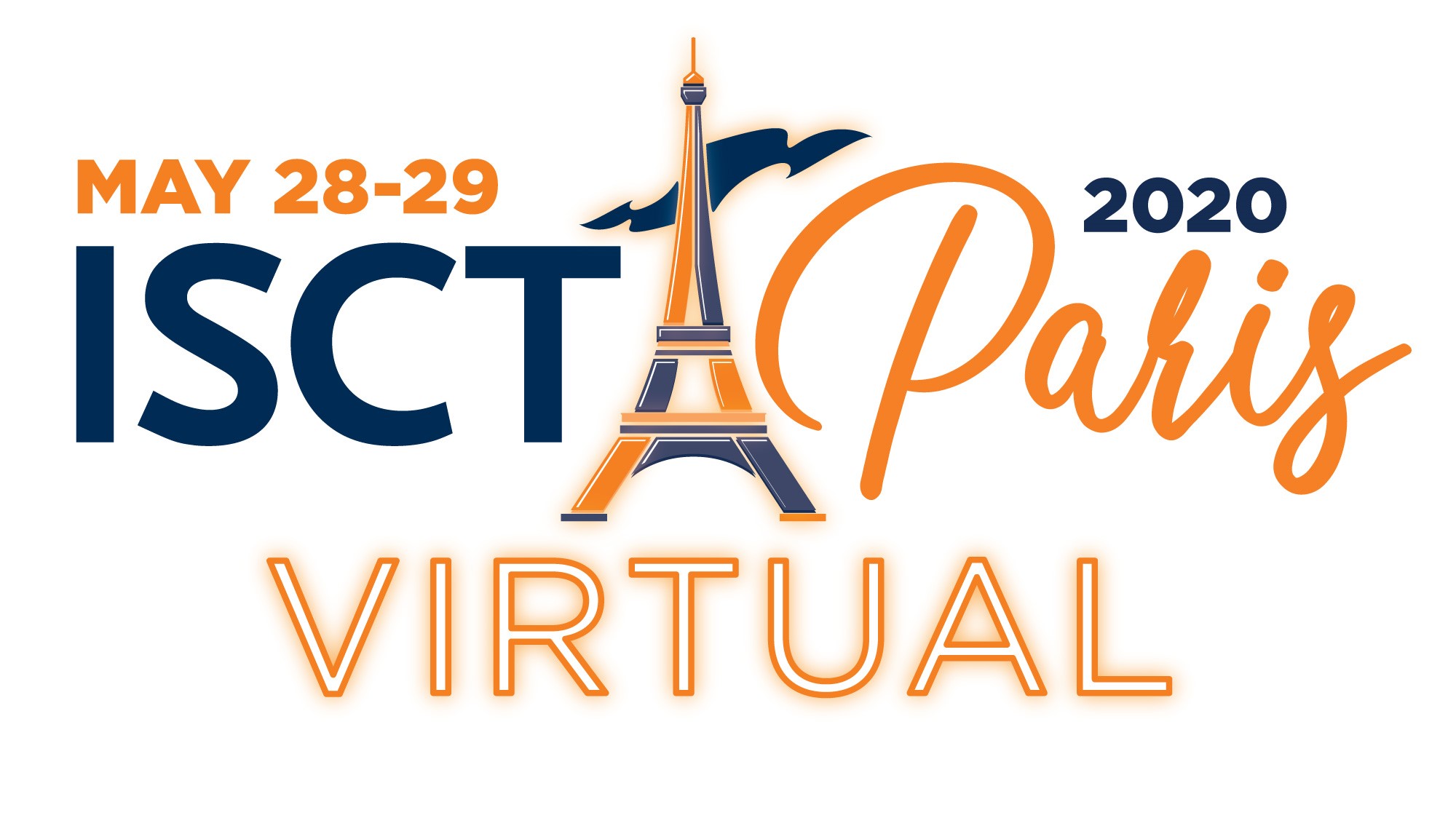
ISCT 2020 Program Schedule
ISCT 2020 Registration Portal
NEW - Students register for free!
Please note that due to health and safety concerns related to the COVID-19 pandemic, the ISCT 2020 Annual Meeting has been changed to a virtual meeting only. We have updated the information below accordingly and thank ISCT organizers for maintaining the HESI CT-TRACS session in the revised virtual program.
The HESI Cell Therapy - TRAcking, Circulation, & Safety (CT-TRACS) Committee is pleased to present a session on "Imaging Cellular Therapeutics" as part of the newly designed International Society for Cell & Gene Therapy (ISCT) Virtual Meeting program. The session will be pre-recorded and accessible to registered participants online starting May 28, 2020 at 7:00 AM CEST. During the two days of the virtual meeting, delegates will have the opportunity to post questions to speakers and the session chair via an open chat forum within the session virtual room. After the conclusion of the conference, the session recording will remain available to all delegates for streaming on-demand until 2021!
We look forward to interacting with you in this CT-TRACS Virtual Session and throughout the duration of the event, on May 28-29, 2020, featuring 30+ unique sessions, 45+ hours of live and on-demand streaming, and a fully interactive Poster Hall, Exhibit Hall, and Virtual Partnering Forum.
Session Details:
- Title: "Imaging Cellular Therapeutics"
- Chair: Dr. Brooke Helfer (Celsense, Inc.), CT-TRACS “Point of Administration / Biodistribution” Working Group Co-Chair
- Duration: 90 minutes
- Description: Guest speakers will present their experience with imaging cellular therapeutics to bring awareness to how non-invasive in vivo cell tracking technologies and methods can provide unique opportunities to optimize efficacy of cell-based therapies and aid in the assessment and management of eventual toxicities, and ultimately, benefit their clinical translation.
Learning Objectives:
- To learn about the different imaging modalities for monitoring cellular therapies
- To learn about developing and available, clinically applicable cell tracking technologies
- To learn how imaging can aid in the translation of cellular therapeutics
Program:
- Introduction by Session Chair (Dr. Brooke Helfer, CT-TRACS PoA / BD Working Group Co-Chair)
- Developments in Imaging Cell-Based Therapy: Applications in Cancer Immunotherapies (Dr. Jane Sosabowski, Barts Cancer Institute, Queen Mary University of London, UK)
- Seeing is Believing: In Vivo Microscopy for Optimizing Cellular Immunotherapies (Dr. Bettina Weigelin, Werner Siemens Imaging Center, Eberhard Karls Universität Tübingen, Germany)
- Monitoring of Intracerebellar Delivery of Natural Killer Cells (Dr. Vidya Gopalakrishnan, MD Anderson Cancer Center, University of Texas, USA)
- Panel discussion (~15-20 minutes)
For more information, please contact Dr. Lucilia Mouriès at lmouries@hesiglobal.org.
CT-TRACS Session Speaker Bios
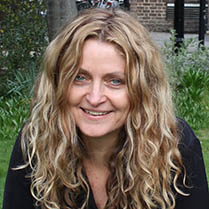 Jane Sosabowski, PhD
Jane Sosabowski, PhD
Reader in Molecular Imaging, Barts Cancer Institute, Queen Mary University of London
[simple_tooltip bubblewidth='1024' content='Jane Sosabowski, PhD
Dr. Jane Sosabowski holds the position of Reader in Molecular Imaging in the Centre for Cancer Biomarkers and Biotherapeutics, Barts Cancer Institute, Queen Mary University of London. She carried out her PhD in Radiochemistry in the Joint Department of Physics at the Institute for Cancer Research, Royal Marsden Hospital in London before joining the Nuclear Medicine Research Laboratory at Barts and the London School of Medicine and Dentistry. She now leads the Cancer Imaging Laboratory at Barts Cancer Institute. Her research interests are in radiopharmaceutical development, in vivo imaging of biotherapeutics, as well as in vivo cell tracking and development of machine learning tools for image analysis. She is part of the CRUK Major Centre in Biotherapeutics and has an active role in moving new radiolabelled biomolecules or biotherapeutics into the clinic at Barts Health, including a cross-London effort to develop GMP methods for imaging cell therapies in clinical trials. Together with Dr Sophie Papa who leads the ImmunoEngineering Group at Kings College London, she is developing techniques for absolute quantitation of cell therapies in vivo using nuclear imaging (PET and SPECT). ']Dr. Sosabowski's Bio[/simple_tooltip]
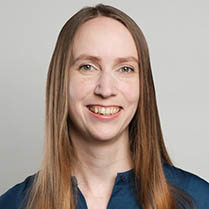 Bettina Weigelin, PhD
Bettina Weigelin, PhD
Group Leader, Werner Siemens Imaging Center, Eberhard Karls
Universität Tübingen
[simple_tooltip bubblewidth='1024' content='Bettina Weigelin, PhD
Bettina Weigelin is a Group Leader at the Werner Siemens Imaging Center, Department for Preclinical Imaging and Radiopharmacy at the University of Tübingen, Germany. She obtained her PhD in Medical Sciences from the Radboud University of Nijmegen, The Netherlands, where she applied intravital multiphoton imaging to study cancer invasion and immune function in solid tumors. In 2016 she received a Rubicon Young Investigator Award (NWO) to support her stay at MD Anderson Cancer Center, Houston, USA, where she used intravital microscopy to understand immunosuppression mediated by the bone microenvironment to develop novel strategies for immunotargeting of bone metastasis. Her group ‘Multiscale Immunoimaging’ at the University of Tübingen combines advanced microscopic techniques with state-of-the art macroscopic imaging to gain mechanistic insight in adoptive T cell therapies at the cellular and whole-body scale, to identify strategies for improved cancer immunotherapies.']Dr. Weigelin's Bio[/simple_tooltip]
 Vidya Gopalakrishnan, PhD
Vidya Gopalakrishnan, PhD
Associate Professor, Division of Pediatrics, MD Anderson Cancer Center, University of Texas
[simple_tooltip bubblewidth='1024' bubblecolor='#FFFFFF' content='Vidya Gopalakrishnan, PhD
Michelle received her PhD in toxicology in 2004 and BS in Biology and Environmental Science and Policy in 1998 from Duke University. She is currently the Associate Director of Environmental Science at the Health and Environmental Sciences Institute (HESI), where she provides leadership, technical direction, and guidance to varied, multi-stakeholder, collaborative committees on topics related to risk assessment and environmental protection worldwide.
Dr. Gopalakrishnan completed her BS and MS degrees in Microbiology and Biochemistry from the University of Bombay in India. She obtained her PhD degree in Microbiology and Genetics at the University of Pittsburgh-School of Medicine in 1995 for her work identifying proteins that regulated the replication of human papilloma virus DNA replication. Her thesis work was supported by the Ben Franklin graduate fellowship. She subsequently accepted a post-doctoral fellowship position in Dr. Thomas Kelly’s group at the Johns Hopkins University School of Medicine, where she applied genetic and biochemical tools to uncover molecular mechanisms that restricted initiation of DNA replication to a once per cell cycle event. During this time, she successfully competed for fellowships from the Leukemia and Lymphoma Society and the National Institutes of Health (NIH). This work laid the foundation for her foray into brain tumors, which she has studied for the last 15 years. She is currently an Associate Professor in the Division of Pediatrics at the University of MD Anderson, where her research aims to delineate the molecular underpinnings of pediatric brain tumors and to leverage druggable pathways for therapeutic purposes.
Work in her group is broadly divided into 3 areas: (A) Brain tumor epigenetics: with a major focus on the transcription factor REST and its role in driving initiation and progression of pediatric brain cancers, medulloblastoma (MB) and diffuse intrinsic pontine glioma (DIPG), (B) Brain tumor proteomics: with an emphasis on a component of the proteasomal machinery called USP37, and studying the consequences of its dysregulation in brain tumors and, of relevance to this talk (C). Development of immunotherapy for pediatric brain tumors: She leads the efforts of a multidisciplinary team of scientists and physicians at MD Anderson Cancer Center to develop immunotherapy for recurrent/refractory pediatric brain tumors. Her lab findings have been transitioned to the clinic through initiation of a Phase-I clinical trial to test the safety of intracranial administration of immune cells. To monitor the fate of infused cells, she is working with imaging experts to develop novel 19F MRI-based imaging approaches. Overall, her work spans the spectrum of basic, translational and clinical research. Her work has been consistently supported by grants from the NIH, American Cancer Society, Cancer Prevention Research Institute of Texas (CPRIT) and multiple pediatric cancer foundations. She currently is mentor to a group of 11 scientists, fellows and graduate students.
']Dr. Gopalakrishnan's Bio[/simple_tooltip]
[post_title] => CT-TRACS Session at ISCT 2020 Virtual Meeting
[post_excerpt] =>
[post_status] => publish
[comment_status] => closed
[ping_status] => closed
[post_password] =>
[post_name] => ct-tracs-session-at-isct-2020-annual-meeting
[to_ping] =>
[pinged] =>
[post_modified] => 2020-08-28 15:05:02
[post_modified_gmt] => 2020-08-28 15:05:02
[post_content_filtered] =>
[post_parent] => 0
[guid] => https://hesiglobal.org/?post_type=event&p=22133
[menu_order] => 0
[post_type] => event
[post_mime_type] =>
[comment_count] => 0
[filter] => raw
)
)
[post_count] => 6
[current_post] => -1
[before_loop] =>
[in_the_loop] =>
[post] => WP_Post Object
(
[ID] => 23708
[post_author] => 2
[post_date] => 2020-10-27 17:55:16
[post_date_gmt] => 2020-10-27 17:55:16
[post_content] =>
[post_title] => Quantitative Interpretation of Genetic Toxicity Dose Response Data for Risk Assessment and Regulatory Decision-Making: Current Status, Persistent Challenges, and Emerging Priorities
[post_excerpt] =>
[post_status] => publish
[comment_status] => closed
[ping_status] => closed
[post_password] =>
[post_name] => quantitative-interpretation-of-genetic-toxicity-dose-response-data-for-risk-assessment-and-regulatory-decision-making-current-status-persistent-challenges-and-emerging-priorities
[to_ping] =>
[pinged] =>
[post_modified] => 2020-10-30 15:26:58
[post_modified_gmt] => 2020-10-30 15:26:58
[post_content_filtered] =>
[post_parent] => 0
[guid] => https://hesiglobal.org/?post_type=event&p=23708
[menu_order] => 0
[post_type] => event
[post_mime_type] =>
[comment_count] => 0
[filter] => raw
)
[comment_count] => 0
[current_comment] => -1
[found_posts] => 8
[max_num_pages] => 2
[max_num_comment_pages] => 0
[is_single] =>
[is_preview] =>
[is_page] =>
[is_archive] =>
[is_date] =>
[is_year] =>
[is_month] =>
[is_day] =>
[is_time] =>
[is_author] =>
[is_category] =>
[is_tag] =>
[is_tax] =>
[is_search] =>
[is_feed] =>
[is_comment_feed] =>
[is_trackback] =>
[is_home] => 1
[is_privacy_policy] =>
[is_404] =>
[is_embed] =>
[is_paged] =>
[is_admin] =>
[is_attachment] =>
[is_singular] =>
[is_robots] =>
[is_favicon] =>
[is_posts_page] =>
[is_post_type_archive] =>
[query_vars_hash:WP_Query:private] => ba9d6bc8d4bc18c30560b31dc73c6bb5
[query_vars_changed:WP_Query:private] =>
[thumbnails_cached] =>
[allow_query_attachment_by_filename:protected] =>
[stopwords:WP_Query:private] =>
[compat_fields:WP_Query:private] => Array
(
[0] => query_vars_hash
[1] => query_vars_changed
)
[compat_methods:WP_Query:private] => Array
(
[0] => init_query_flags
[1] => parse_tax_query
)
)





 Jane Sosabowski, PhD
Jane Sosabowski, PhD Bettina Weigelin, PhD
Bettina Weigelin, PhD Vidya Gopalakrishnan, PhD
Vidya Gopalakrishnan, PhD